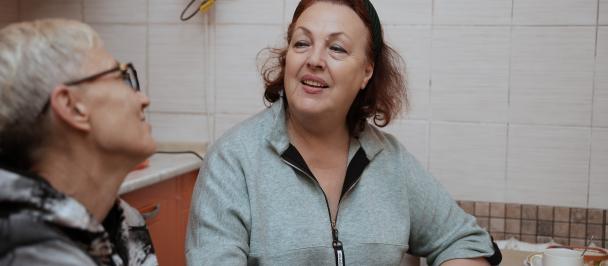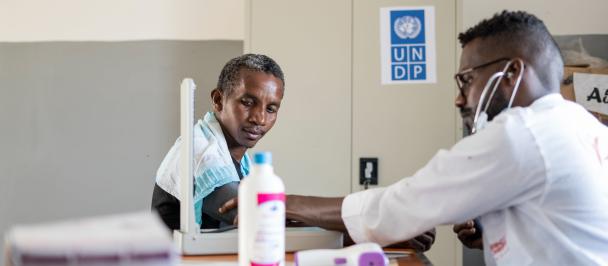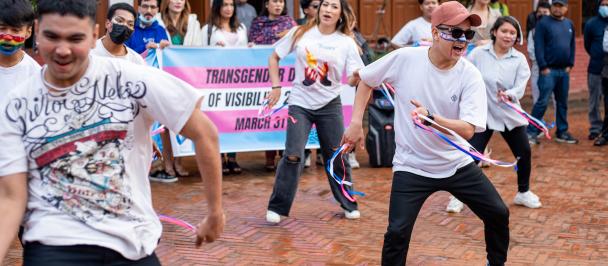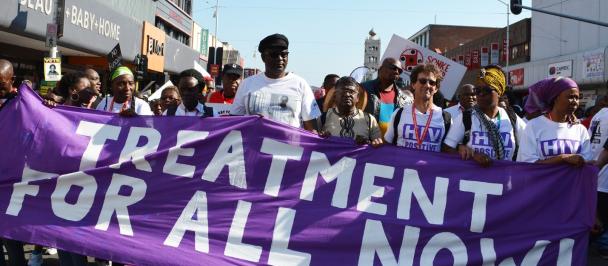This Zero Discrimination Day, UNAIDS, in line with the recommendations of the Global Commission on HIV and the Law, is highlighting the need to take urgent action against discriminatory laws. The Commission’s research covering 140 countries shows, that bad laws fuel the spread of HIV and block effective responses to HIV. Public resources are wasted on laws that criminalize HIV transmission, dehumanize those at risk, and deprive people of services and medicines.
Discrimination doesn’t just hurt individuals; it perpetuates harm in communities more broadly. According to the Global Commission on HIV and the Law, discrimination against the most marginalized people in our societies fundamentally undermines the response to the HIV epidemic. Given that populations, such as gay men and other men who have sex with men, people who use drugs, sex workers, transgender people and prisoners, accounted for 47 percent of new infections in 2017, turning the tide against HIV requires a much more inclusive approach.
In many places these groups are under attack by those who are obliged to protect them. They commonly face stigma, discrimination and violence that stop them getting prevention, care and treatment. According to the latest report of the Global Commission on HIV and the Law, civil society organizations who are on the frontlines are faced with increasingly repressive laws and policies. Between 2012 and 2015, 60 countries passed 120 laws restricting the activities of non-governmental organizations, with more than one third of those laws related to foreign funding of NGOs.
Yet there are also progressive trends. Good laws and practices exist that protect human rights. Many countries are legislating for greater acceptance of marginalized people living with HIV. Since 2012, the UNDP has worked with 89 countries to help revise their laws and policies to protect people’s health and rights.
Opportunities for change
This year there are several opportunities for change. Firstly, in 2015 at the United Nations 193 countries pledged to leave no one behind. The 2019 High-Level Political Forum will review progress on SDG 10 ‘reducing inequalities within and between countries’. This will be an important opportunity to step up leadership for reducing the inequalities that are driving HIV infections, especially in marginalized groups.
Secondly, the World Health Organization and other global health organizations, including UNDP, are pushing even harder to make health services accessible to everyone, everywhere, under the banner of Universal Health Coverage. It is vital that governments heed this call to action and extend the promise of ‘health for all’ to those that are being left behind in the HIV response.
Finally, the global fight against HIV should get fresh impetus this year, as leaders meet in France to ‘replenish’ the Global Fund–-a key source of finance for tackling the virus and removing human rights barriers. It is a chance to get more governments, philanthropists and international organizations to commit to advancing the health and rights of marginalized groups.
To create societies that are just, fair and healthy, we must do more to tackle stigma and discrimination. Repealing regressive laws, and enforcing laws which protect and promote human dignity, is one of the best ways of tackling stigma and discrimination. Getting to zero new HIV infections will only be achieved if we invest in zero discrimination, especially for those left farthest behind.

 Locations
Locations




